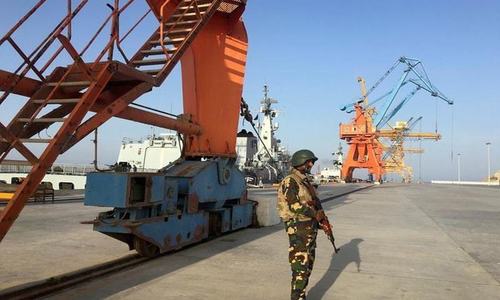THE news from Southeast Asia has made some headlines domestically too, as a newly elected leader in Malaysia decided to revisit all Chinese projects launched by his predecessor.
The outlines of the news resonate closely here in Pakistan, where a new leader promising a new beginning has just begun his career, and has promised a closer look at all CPEC projects to determine whether or not any wrongdoing may have been committed when they were being negotiated.
As in the case of Malaysia, the former leader is now in jail, facing corruption charges, which adds fuel to the notion in the public’s mind that all deals negotiated under him should be re-examined.
Take a look: CPEC repayment plan under preparation
One key difference, perhaps, is that in the case of Pakistan, the new leadership has promised greater transparency and continuity in CPEC projects, provided no real evidence of wrongdoing emerges.
Perhaps this resonance between the news from Malaysia and developments here lies behind the three-day visit that the Chinese Foreign Minister Wang Yi has just begun. He is the third foreign minister to visit Pakistan since the new government took over, and his is the longest visit of all.
His plate is heavy given the massive stakes China has in this country, but in contrast to the US secretary of state who was here recently, his baggage is light. This gives him the space, not only to spend time in the country, but also indulge in activities like meeting students who are about to begin their studies in China.
Also read: How Gwadar’s CPEC development might leave its people behind
But at some point, the pleasantries will subside and the conversation will turn to more substantive matters, like the fate of the large investments China has made here, and the future of the plans drawn up under the CPEC framework. Those plans include almost Rs1tr worth of the Pakistan government’s commitments to projects under CPEC, to be paid from its own resources.
On top of that, plenty of work needs to be done on the special economic zones which require extensive coordination with provincial authorities.
Apart from the air of ‘change’ sweeping the country, the stars light behind the venture. The ruling party controls two provinces as well as the centre, and is in a unique position to advance the project given the virtual absence of an organised opposition.
This is a good opportunity for the government to clarify all issues with the Chinese authorities regarding CPEC, and its own thinking on the project’s future.
Chief among these clarifications must be the question of transparency. In Pakistan, public policy requires far greater transparency and disclosure. That is just how our laws and public traditions are.
Once the importance of this priority has been impressed upon our Chinese guest, the rest of the path forward becomes a lot clearer automatically.
Published in Dawn, September 8th, 2018













































